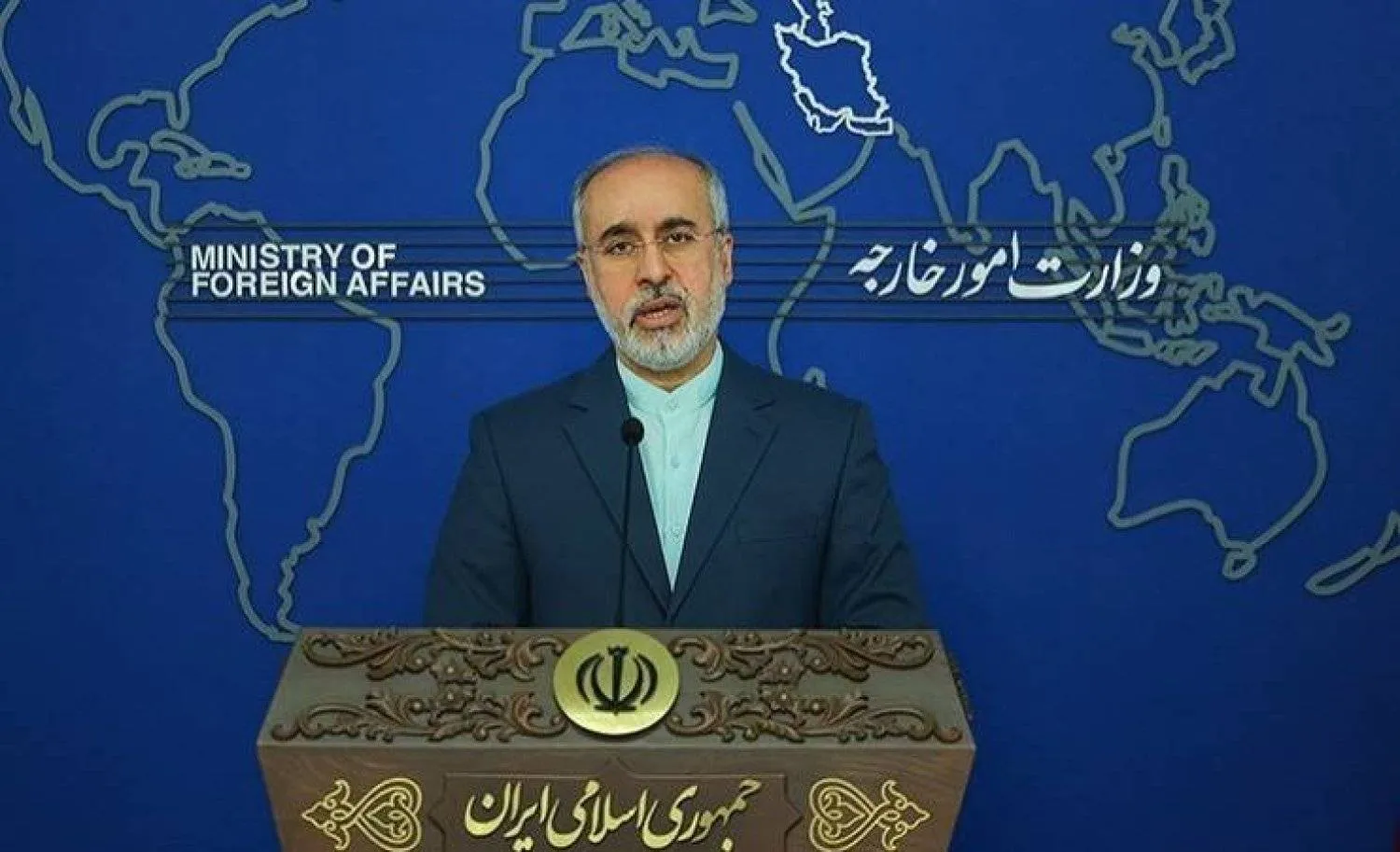Iran's Foreign Ministry spokesman Nasser Kanaani said on Monday his country is committed to the negotiation table for the removal of sanctions, adding that Tehran remains in full cooperation with the UN nuclear watchdog to resolve certain ambiguities about its nuclear program.
At a weekly press conference in Tehran, the spokesman then rejected the recent US threat against Iran if the latter fails to cooperate with international inspectors.
At the quarterly meeting of the International Atomic Energy Agency's 35-nation Board of Governors in Vienna last week, the US threatened future action against Iran if Tehran keeps “stonewalling” the watchdog by denying it the cooperation and answers it seeks on issues including long-unexplained uranium trace.
The United States and its three top European allies - Britain, France and Germany - had opted against seeking a resolution against Iran at the meeting but Washington said that if Iran did not provide the necessary cooperation soon, it would act.
The US said Iran should provide the IAEA with cooperation including access “for the purposes of collecting environmental samples ... and it must begin to do so now.”
If it did not, it would ask IAEA chief Rafael Grossi to provide a “comprehensive report” on Iran's nuclear activities more wide-ranging than his regular quarterly ones, it said.
Responding to the US position, Kanaani said “unfounded and non-technical decisions” have no impact on Iran’s determination to continue its cooperation with the IAEA.
He then asserted that the US, as a violator of international agreements such as the Iran nuclear deal or the JCPOA, does not have the authority to comment on Tehran's actions and must fulfill its obligations.
UN Warning
A week ago, at the IAEA’s Board of Governors meeting, Grossi renewed his call upon Iran to cooperate fully and unambiguously with the UN nuclear watchdog.
“I deeply regret that Iran has yet to reverse its decision to withdraw the designations for several experienced Agency inspectors,” Grossi told the meeting.
“Only through constructive and meaningful engagement can all of these concerns be addressed and once again I call upon Iran to cooperate fully and unambiguously with the Agency,” he added.
As part of its escalatory actions taken with the arrival of US President Joe Biden to the White House in January 2021, Tehran has significantly reduced inspection operations, disconnected surveillance cameras, and withdrawn the designation of several nuclear experts.
It is more than a year since the IAEA's Board of Governors passed a resolution ordering Iran to cooperate with a years-long investigation into uranium particles found at undeclared sites, saying it was “essential and urgent” for Iran to explain the traces.
Tehran rejected the resolution and said it had political goals and was anti-Iranian.
Last week, Grossi reiterated his concerns about the potential risks of nuclear proliferation in the region. At a press conference, he said that, while he has no information that Iran is making a nuclear weapon, he is tuning into what is being said by Iranian officials who are boasting about their country’s nuclear capabilities.
In a statement last month, the former chief of the Atomic Energy Organization of Iran, Ali Akbar Salehi, claimed that his country had crossed “all the thresholds of nuclear science and technology.”
Grossi said, “What I would say is that Iran is the only country that does not have a nuclear weapon that is enriching at 60% and is accumulating uranium enriched at 60%.”
Nuclear Talks
In 2018, then-President Donald Trump pulled the United States out of the 2015 nuclear deal under which major powers lifted sanctions against Iran in exchange for restrictions on its nuclear activities. After sanctions were re-imposed, Tehran expanded those activities far beyond the deal's limits.
In September 2022, talks between Tehran and the major powers to revive the agreement reached an impasse. Since then, Tehran said it is “committed to the negotiating table aimed at lifting sanctions,” without mentioning the commitments it might make in the future.
On Monday, Kanaani mentioned a recent meeting held between EU's deputy foreign policy chief, Enrique Mora, and Iran's Deputy Foreign Minister for Political Affairs, Ali Bagheri Kani, to discuss bilateral and regional issues, including efforts to lift sanctions as part of ongoing negotiations related to JCPOA.
Mora wrote in a post on X that he had met Bagheri Kani in Doha, listing the meeting's agenda as “Iran-Russia military cooperation, Gaza war and regional dimension, nuclear commitments and sanctions lifting in JCPOA framework, and bilateral issues.”









